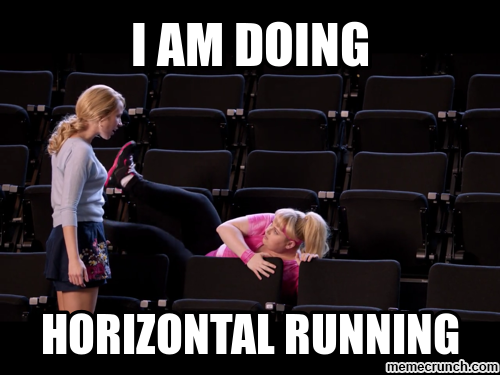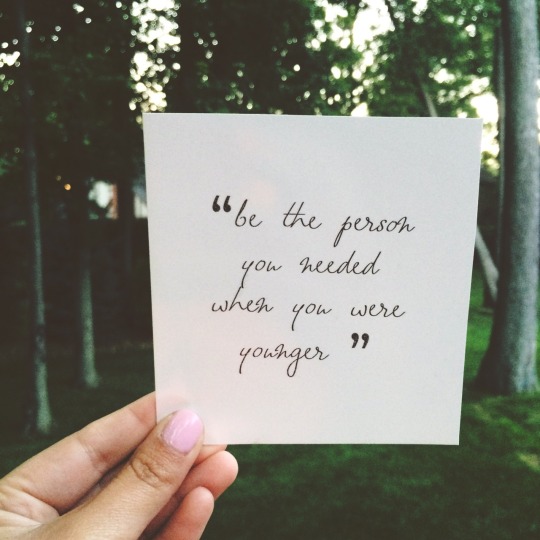 We live in a society that makes a big issue of age, and make a lot of judgements and assumptions about people based on how old they are, and it's something I don't understand.
We live in a society that makes a big issue of age, and make a lot of judgements and assumptions about people based on how old they are, and it's something I don't understand.If you want to be taken seriously, you need to be an adult; don't expect society to really pay attention to what you say if you're a teenager or younger, or if you're elderly. Society will collectively smile and nod while you're talking, but roll their eyes once your back is turned. It's atrocious that teenagers are patronised and the elderly are thought past it, as if age is some sort of indicator for intellect or ability to understand, and you're only able to do so once you're no longer a teenager, but before you're - what, 50? 60? 70? What is "old", anyway?
I have two examples of you to show that these ideas, these stereotypes that we seem to take as fact, are complete rubbish. Malala Yousafzai, now 18, was shot at 14, and since recovering, has been campaigning for female education. Yousafzai started to really use her voice, which led to being nominated for the International Children's Peace Prize, before she was shot. The very reason why she was shot. Would you patronise her? On Thursday 21st April 2016, Queen Elizabeth II turned 90. Whatever you think of the Queen and the monarchy in general, you cannot deny how tirelessly this woman works, how informed she is, how her opinion is sought after. I don't think anyone could listen to the Queen speak and think she is past it. Yes, these women are two very public figures, they're not your everyday teenager or elderly person. But that doesn't mean that people in similar age brackets aren't just as smart, aren't just as worthy of being heard. Just because they're not on the TV or in the news doesn't mean they should be dismissed. Teenagers will have fresh ideas and a unique viewpoint for living in this world right now as young people, and older people have experience on their side. We should be listening to what they have to say; their opinions and views are just as important as our own.
I also want to touch on society's obsession with youth when it comes to women and beauty. It's such an incredibly sexist idea that as women age, they lose their beauty. This is something we see a lot with celebrities, with more women having plastic surgery to appear younger, yet it's perfectly ok for men to age, because they become silver foxes. It's a completely ridiculous idea because it simply isn't true. Ageing doesn't make women unattractive. Look at Helen Mirren, Maggie Smith, Celia Imrie and Julie Walters, for example. These women are beautiful. Not in spite of their age, but because they just are.
Because of the stereotypes and ideas about age, we also make assumptions about people and decisions based on how old we think they are - based on their appearance. I am 29, but most people still think I'm a teenager. I am constantly patronised because I look so young, and sometimes have my opinions dismissed if I disagree - because I'm just a teenager, and obviously, teenagers don't know anything. You have no idea how frustrating it can be. I don't mind so much people thinking I'm younger - except for when people my own age see someone much younger when they look at me, and so dismiss me - it's how I'm treated because of how old people assume I am that really winds me up. I feel like I constantly need to tell people how old I am, but I shouldn't have to; yes, I am 29, but even if I was a teenager, my views deserve to be heard. Don't shut people up because they are - or look - young.
On the other side of the coin, there are those who look older than they actually are. This is an idea EastEnders is currently exploring with Jay Mitchell, in his early 20s, who discovers that his girlfriend Linzi is only 14. This is a very delicate situation, and I'm really interested to see how it plays out on the soap. But it shows how you really can't make assumptions of age based on how someone looks, and how it could be dangerous territory. This is a grey area and a scary situation, and not something I have the answer to.* My point is that you shouldn't just assume.
Situations like this just further prove that a teenager's age doesn't necessarily mean anything when it comes to maturity, and the same can be said about any age. Except when it comes to the law, age simply doesn't matter; it's no indication of personality, intellect or level of maturity. Nor is it really any indicator of intent. There is so much judgement on the intentions of people where there is a bit of an age gap in a relationship. If a woman is going out with a man who is considered old, she's a gold digger taking advantage of the old fool - no matter how much money he has. If a man is going out with a woman who is quite a bit younger, he's a perv. Or possibly going through a midlife crisis, depending how close he is to being "old". If an older woman is going out with a much younger man, she's a cougar - which has an air of sexiness to it - but she's also a fool, because obviously her boyfriend is just taking her for a ride, also wanting to get money out of her. No-one considers that there might be real, genuine attraction on both sides, let alone that they might genuinely be in love.
Age is simply an indicator of how long a person has been living. It doesn't tell you anything about who they are, what they think, what they can add to a conversation, what their presence in your life could mean. So why is it so important? Age really is just a number, and we don't all show our age on our faces. We need to start remembering that.
*As I write, it is the morning of Tuesday 26th April 2016. I don't know how Jay's story has progressed over the week, and so this is not a comment on episodes shown after Monday 25th April 2016.

-
If you enjoyed this post, you can find more on:
Bloglovin' | Twitter | Jo's Scribbles





















 As I've
As I've 



